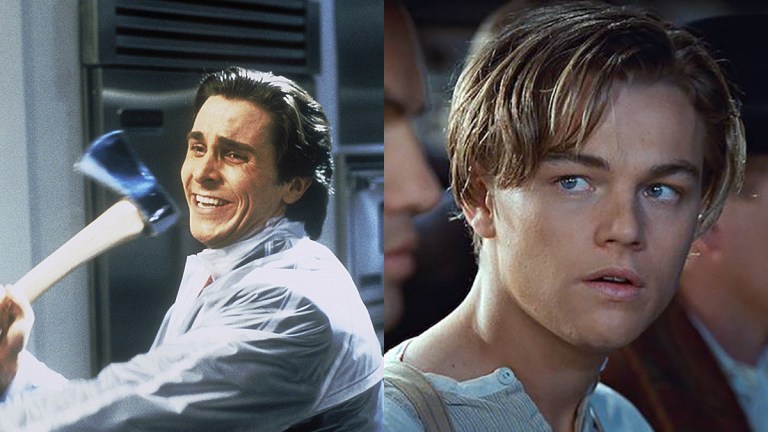American Psycho Director Recalls Fighting Against Leonardo DiCaprio Casting
American Psycho Director Mary Harron recalls walking away from the project after the studio replaced Christian Bale with Leonardo DiCaprio.

It’s a very thin line to walk between comedy and horror. Yet filmmaker Mary Harron skipped over it so perfectly with American Psycho that, 20 years later, people are still talking about it. Indeed, we recently unpacked the subversive feminism Harron brought to Patrick Bateman, a yuppie serial killer in Armani suits as realized by author Bret Easton Ellis, and Harron herself is now making the press rounds to talk about the film—including how she almost didn’t make it when Lionsgate fired her and her early choice for Bateman: Christian Bale.
As hard as it is to imagine now, there was once a time where Bale was not a movie star, and even though he had done sterling work in Steven Spielberg’s Empire of the Sun and Gillian Armstrong’s definitive adaptation of Little Women, he remained a mystery to studios who were eager to cast bankable stars in risky projects—and as Harron tells Little White Lies in a new interview, there is nothing safe about American Psycho. Which is part of the reason she balked when the studio tried to force Leonardo DiCaprio, fresh off Titanic superstardom, on her.
“I didn’t agree with that,” Harron said. “Partly because he was such a big star but also because he had a teenage girl fanbase. I just didn’t think he was right for it—so I was fired from the movie for a while.” In fact, she was outright replaced with Oliver Stone, who by the late ‘90s was indulging extremely violent imagery in films that have aged far less gracefully, like Natural Born Killers and U Turn. One can easily imagine how different that movie would’ve been from Harron’s.
“They couldn’t agree on the script, so they brought me back, and I was able to cast Christian,” Harron said. However, her writing partner Guinevere Turner offered a delicious rumor in 2014 when she said that feminist icon Gloria Steinem begged DiCapiro to walk away from the project because of how repugnant she found the character in the novel. And, ironically enough, Steinem would go on then to later be Bale’s stepmother when she married his father David Bale.
But then Bateman is a hard to appreciate character: he’s a vain narcissist obsessed with status symbols and consumerism, and that’s even before his misogynistic murder sprees. Which is why Harron, Turner, and Bale’s vision for the character worked so well in the movie that did get made.
“The one thing you couldn’t do was make Bateman in any way cool,” Harron told LWL. She later added, “Bret himself is gay and it was obvious to us that he was not presenting a traditional expression of masculinity. He was offering an outsider critique of it, just as we were. In that way, I think we all had the same sensibility. Maybe Bret found Bateman to be cooler than we did. Sometimes there’s self-identification in the book, sometimes he’s satirical. That makes Bateman very slippery, complicated, and interesting.”
She went on to credit Bale’s then less well-known commitment to bringing that physicality and vanity out.
“His physical preparation was beyond what I expected,” she said. “I thought he might have to visit the gym, because Bateman works out, but he went through a complete physical transformation. He only ate grilled chicken.”
You can go here to read the full interview, including Harron’s thoughts on how surprisingly gradual American Psycho’s status rose from controversial in 2000 to bona fide classic in 2020, and how she thinks its depiction of Wall Street and “one percenter” injustice is even more timely today.

